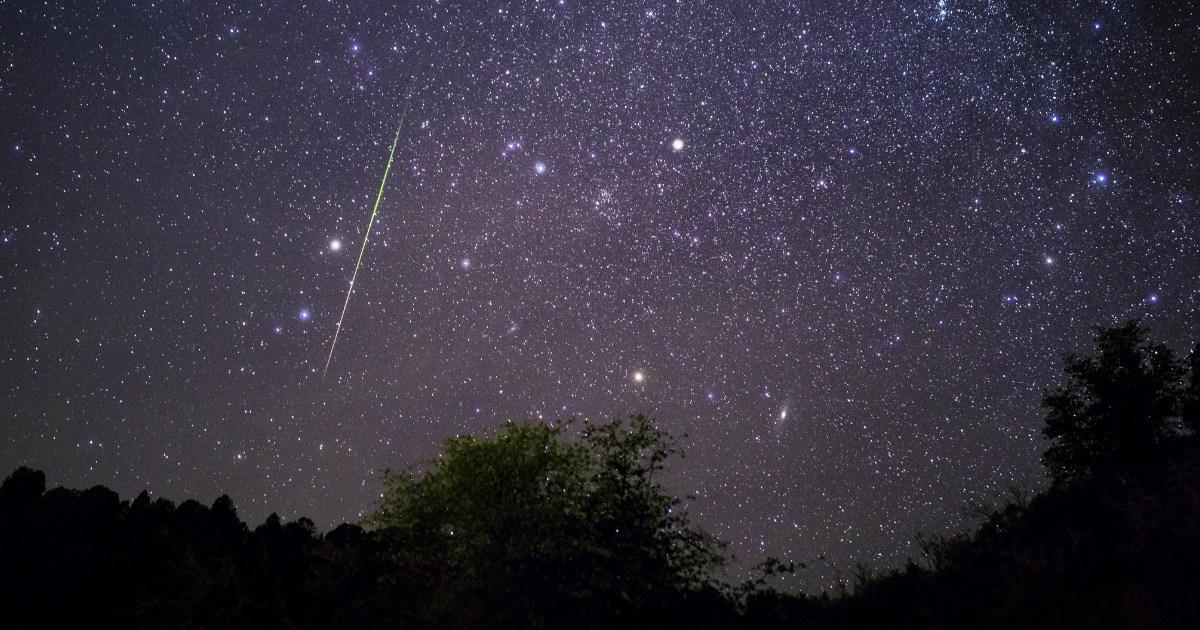The Leonids meteor shower tonight will be visible despite the glow of the full moon
(Picture: Getty)
The Leonids meteor shower is about to reach its peak across the UK tonight just as the Beaver supermoon wanes.
A dazzling display of fast, bright meteors, entering the atmosphere at 70 kilometres per second, will be present throughout November but will be at its peak tonight.
The shower promises 10 meteors per hour as fragments of Comet Tempel-Tuttle enter the Earth’s atmosphere.
Viewing conditions will be affected by the waning supermoon this year, as the bright glow will obscure many of the passing meteors.
How can I watch the Leonid meteor shower?
The Leonid meteor shower can be seen with the naked eye, but will be most visible away from street lights and light pollution of city areas.
Experts recommend standing on a hill, preferably in the countryside, or on the coast, as the darker the night’s sky the high the chances of seeing the illuminating display.
The meteors can be seen in all parts of the sky, so aim for a wide open space where the whole night sky can be seen.
Patience will also be required to spot the meteor show.
Meteor showers are usually most visible between midnight and predawn hours, and it could take as long as 10 minutes for the eyes to adjust.
Meteors will enter the atmosphere at 70 kilometres per second as Earth passes through debris from Comet Tempel-Tuttle (Picture: NASA/Ames Research Center/ISAS/Shinsuke Abe and Hajime Yano)
What causes a meteor shower?
The colourful, glowing streaks of meteors develop when Earth passes through a stream of tiny pieces of debris left behind by a comet, in this case Comet Tempel-Tuttle.
More Trending
When the rocks and debris space enter Earth’s atmosphere travelling at high speeds, the resistance from the air causes them to burn up and glow.
They leave a fiery tail behind them, which is visible as the end of a ‘shooting star’.
The Leonids meteor shower got its name because the meteors appear to radiate from the constellation Leo.
The next big meteor shower after the Leonids will be the Geminid meteor shower, which peaks in mid-December.
Get in touch with our news team by emailing us at webnews@metro.co.uk.
For more stories like this, check our news page.
MORE : Uranus’s wind problem could be good for humanity
MORE : Why is Pluto no longer a planet?
MORE : How to watch the Taurid meteor shower tonight and when it will peak across UK
Get your need-to-know
latest news, feel-good stories, analysis and more
This site is protected by reCAPTCHA and the Google Privacy Policy and Terms of Service apply.
var notifyQ = function () {
var i = 0,
l = awaitingReady.length;
for (i = 0; i
Checkout latest world news below links :
World News || Latest News || U.S. News
The post How to watch the Leonids meteor shower tonight and when it will peak across UK appeared first on WorldNewsEra.

